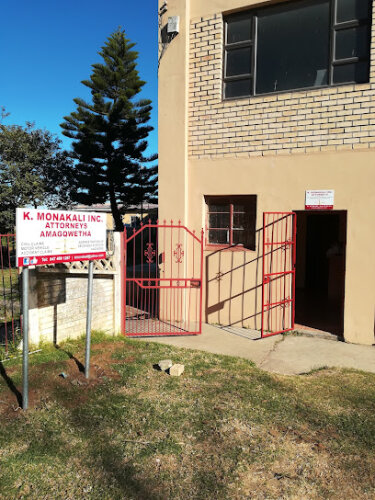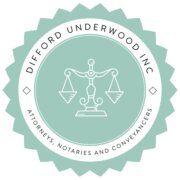Best Conveyancing Lawyers in East London
Share your needs with us, get contacted by law firms.
Free. Takes 2 min.
Free Guide to Hiring a Real Estate Lawyer
List of the best lawyers in East London, South Africa
About Conveyancing Law in East London, South Africa
Conveyancing is the area of law that governs the legal process of transferring property ownership from one person or entity to another. In East London, South Africa, conveyancing is a specialised legal process managed by qualified conveyancers - attorneys admitted to the High Court with an additional conveyancing qualification. The city of East London, as part of the Eastern Cape Province, follows national conveyancing statutes and regulations, with transactions often passing through the Deeds Office in King William's Town. Whether you are buying, selling, subdividing, or registering a new bond, specific legal steps and documentation are required to secure your rights and interests in immovable property.
Why You May Need a Lawyer
There are several scenarios where the advice and assistance of a qualified conveyancing attorney in East London becomes necessary. These include:
- Buying or selling residential, commercial, or agricultural property
- Transferring property between family members (such as for inheritance or divorce settlements)
- Registering or cancelling mortgage bonds with banks or other financial institutions
- Partitioning or subdividing existing property
- Rectifying errors in deeds or property descriptions
- Dealing with deceased estates or insolvent estates that include property assets
- Resolving disputes over property boundaries or ownership rights
- Clarifying municipal rates, transfer duties, or levies applicable to property transfers
- Facilitating the legal processes for foreign buyers of South African property
Given the complexity of property law and the value involved, professional legal guidance helps prevent costly mistakes and ensures compliance with all local requirements.
Local Laws Overview
Conveyancing in East London is primarily governed by several national acts, most notably the Deeds Registries Act and related legislation such as the Transfer Duty Act and Sectional Titles Act. The conveyancing process involves stringent procedures, which include:
- Preparation and lodgment of transfer documents at the Deeds Office
- Obtaining clearance certificates from the local municipality confirming rates and taxes are up to date
- Ensuring transfer duty or VAT is paid to SARS if applicable
- Verification of identities and ensuring compliance with the Financial Intelligence Centre Act (FICA)
- Dealing with the unique protocols that may arise from deeds registration in the Eastern Cape
- Complying with local by-laws, zoning, and building regulations specific to East London
The conveyancer's responsibility is to see that all statutory requirements are met, transfer documents are correctly completed, and the transaction is registered correctly at the Deeds Office, ensuring a valid change of ownership.
Frequently Asked Questions
What is conveyancing, and why is it necessary?
Conveyancing is the legal transfer of property ownership from one person to another. It is required by law to ensure proper title registration and to protect all parties in the property transaction.
How long does the conveyancing process take in East London?
The process generally takes six to twelve weeks, but timing can vary due to documentation, municipal clearances, and Deeds Office processing times.
Do I have to use a conveyancer or can I do it myself?
In South Africa, all property transfers must be handled by an admitted conveyancer - only attorneys who have passed the conveyancing exam may perform this work.
Who appoints the conveyancer?
It is standard practice for the property seller to nominate the conveyancer, but parties can agree otherwise if preferred.
What are the main costs involved in conveyancing?
Typical costs include conveyancing attorney's fees, transfer duty or VAT, Deeds Office registration fees, clearance certificate charges, and minor sundry disbursements.
Can foreigners buy property in East London?
Yes, foreigners may buy property in South Africa, but must comply with FICA and may face restrictions from some mortgage lenders.
What if there is an outstanding bond on the property?
The conveyancer arranges to cancel the existing mortgage bond during the transfer process, ensuring all debts are settled before final registration.
What documents do I need for the conveyancing process?
You will need identity documents, proof of address, marriage certificates (if applicable), signed sale agreements, and municipal clearance certificates.
Can property transfers be done remotely?
Most steps can be handled remotely through email and courier, but original signatures and in-person identity verification may be required at key stages.
What happens after registration at the Deeds Office?
Once transfer is registered, ownership shifts to the new owner and the conveyancer delivers proof of registration (the new title deed) to the buyer or their bank.
Additional Resources
The following resources and bodies can provide further information or support:
- The Law Society of South Africa - for lists of accredited conveyancers
- The Deeds Office, King William's Town - for status of deed registrations
- Buffalo City Metropolitan Municipality - for rates and clearance certificates
- South African Revenue Service (SARS) - for transfer duty queries
- The Department of Agriculture, Land Reform and Rural Development - for land and title matters
- Legal Aid South Africa - for qualifying individuals needing low-cost assistance
Next Steps
If you require legal assistance with conveyancing in East London, begin by gathering your relevant documents - such as your sale agreement, title deed, identity documents, and municipal accounts. Research and select a reputable local conveyancer or law firm with experience in property transfers. Arrange an initial consultation to clarify your needs, the expected costs, and the anticipated timeline. If your matters are complex, prepare a list of questions before meeting with the attorney. Always ensure your conveyancer is admitted and experienced in transactions within East London and the broader Eastern Cape. If affordability is a concern, inquire about Legal Aid or other pro bono resources in the region.
Lawzana helps you find the best lawyers and law firms in East London through a curated and pre-screened list of qualified legal professionals. Our platform offers rankings and detailed profiles of attorneys and law firms, allowing you to compare based on practice areas, including Conveyancing, experience, and client feedback.
Each profile includes a description of the firm's areas of practice, client reviews, team members and partners, year of establishment, spoken languages, office locations, contact information, social media presence, and any published articles or resources. Most firms on our platform speak English and are experienced in both local and international legal matters.
Get a quote from top-rated law firms in East London, South Africa — quickly, securely, and without unnecessary hassle.
Disclaimer:
The information provided on this page is for general informational purposes only and does not constitute legal advice. While we strive to ensure the accuracy and relevance of the content, legal information may change over time, and interpretations of the law can vary. You should always consult with a qualified legal professional for advice specific to your situation.
We disclaim all liability for actions taken or not taken based on the content of this page. If you believe any information is incorrect or outdated, please contact us, and we will review and update it where appropriate.











